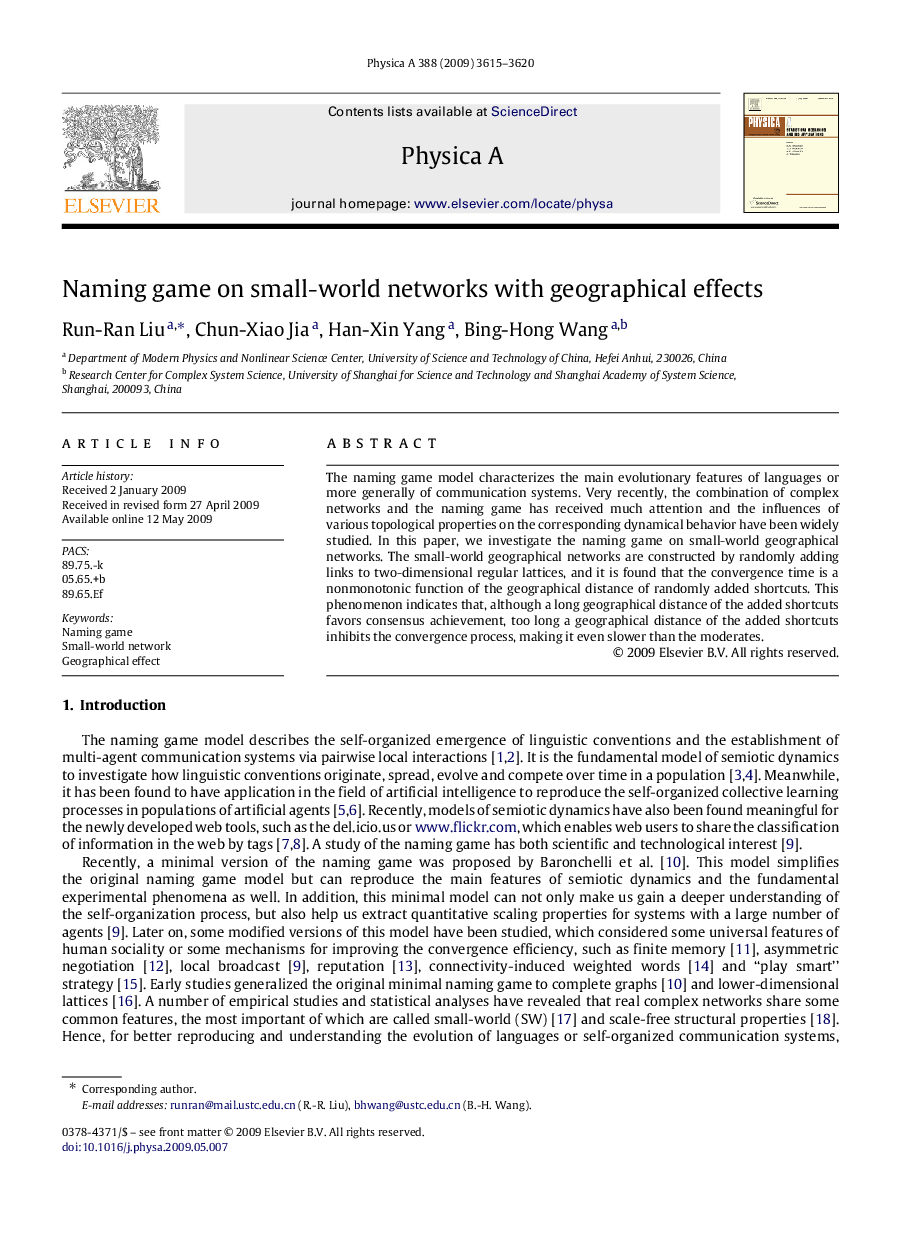| Article ID | Journal | Published Year | Pages | File Type |
|---|---|---|---|---|
| 976326 | Physica A: Statistical Mechanics and its Applications | 2009 | 6 Pages |
The naming game model characterizes the main evolutionary features of languages or more generally of communication systems. Very recently, the combination of complex networks and the naming game has received much attention and the influences of various topological properties on the corresponding dynamical behavior have been widely studied. In this paper, we investigate the naming game on small-world geographical networks. The small-world geographical networks are constructed by randomly adding links to two-dimensional regular lattices, and it is found that the convergence time is a nonmonotonic function of the geographical distance of randomly added shortcuts. This phenomenon indicates that, although a long geographical distance of the added shortcuts favors consensus achievement, too long a geographical distance of the added shortcuts inhibits the convergence process, making it even slower than the moderates.
